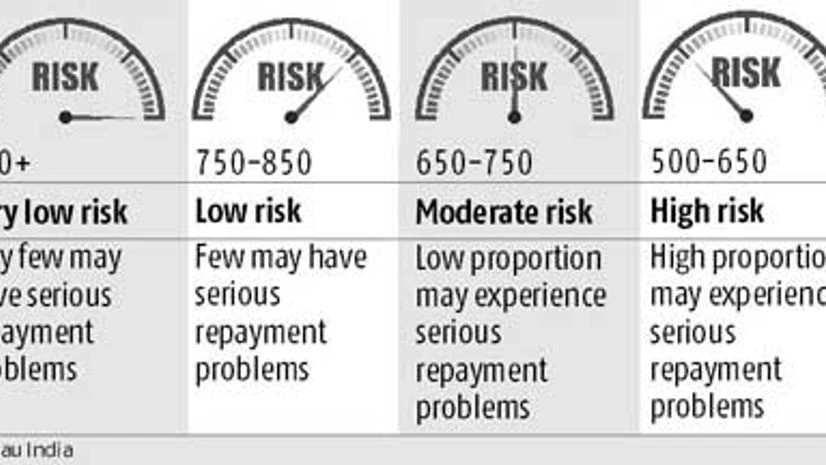So far, pricing of financial products has been standardised with all customers paying the same price. But all customers are not the same. Better-quality customers make fewer claims from insurance companies. For banks, such customers mean lower loan default rates. Now, with the growing use of credit scores, the ubiquity of mobile phones and the advent of mobile-based apps and fitness tracking wearables, companies are willing to track the activities of individual customers and charge less from the better ones. We evaluate a few such offerings.
Good borrowers get best rates
From April 1 this year, Bank of Baroda has implemented risk-based pricing linked to the credit score of home loan applicants. For applicants having a lower credit score, the bank adds a suitable credit risk premium to the normal benchmark pricing to arrive at the applicable interest rate.
The bank is offering its standard rate, which is the minimum benchmark rate (that is, the one-year MCLR plus a strategic premium), to applicants having a high credit score. At present the bank's one-year MCLR plus the strategic premium comes to 9.60 per cent. "For customers with a bad score, the risk premium added to the standard rate will range from 50-100 basis points," says Ashok Aneja, general manager-retail banking, Bank of Baroda.
In the past, credit scores have been used by banks mostly to determine whether to grant a loan or refuse it. "If a person had a poor score, he would not get a loan from a leading bank and would have to go to an NBFC (non-banking financial company) where the interest rate would be higher. This is perhaps the first time that pricing of risk is being done based on credit score," says Arun Ramamurthy, co-founder, Credit Sudhaar, a company that helps people improve their credit score. The credit score reflects a person's repayment behaviour on past loans.
Other banks are yet to take this route. "In India, credit scores themselves are not a very good indicator of credit risk, at least not yet.
They are still work in progress," says Ramamurthy.
Bajaj Allianz General Insurance has launched a facility, wherein the customer's driving behaviour is monitored throughout the year. With good driving behaviour, he can accumulate reward points that can be used to get a discount on the following year's premium.
Policyholders will be issued a small device that has to be plugged into the car's on-board diagnostic (OBD) port (situated near the steering wheel). Next, the customer has to download an app on his mobile phone. Based on driving behaviour - sudden acceleration and harsh braking are viewed negatively - a yearly score will be generated. "Based on the annual score, a customer can get discount of up to 30 per cent on his car insurance premium at the time of renewal," says Adarsh Agarwal, head, actuarial, Bajaj Allianz General Insurance.
According to experts, such devices monitor both mileage clocked and driving behaviour. If one car is driven 5,000 km and another runs for just 700 km in a year, the former carries higher risk than the latter. "Customers should see how much premium reduction the company offers on this product. If it is substantial, go for it," says Naval Goel, founder and chief executive officer (CEO), PolicyX.
Exercise more, pay less
Cigna TTK Health Insurance has launched a programme called Get ProActiv India. Customers have to download the company's app called GetProActiv on their smartphone. Your steps, the measure of your activity level, are measured either by a wearable device or by another mobile app. These data are fed into the app. A higher activity level translates into more reward points. "For prospective customers we can come up with a health score and make them an offering at a certain level of premium, based on their fitness level. For existing customers, the activity data gets converted into reward points that can be used to offset their future premium, as these points don't expire. These reward points can also be used to get outpatient benefits," says Sandeep Patel, managing director and CEO, Cigna TTK Health Insurance.
Patel offers two reasons for launching this programme. "Many people who are healthy think they don't need health insurance. But the fact is they need to buy health insurance while they are healthy. They will not be able to get it once they fall ill. Through a programme like this, we are able to give something back to customers who feel they are not getting anything from their health insurance," says Patel. Another reason, he says, is to reward customers who add positively to the risk pool and help keep claims, and hence premium levels, low.
Things to watch out for
Don't buy a product just because it has a feature wherein good behaviour is rewarded with lower pricing. "In each category, there are certain core features that the product must have. Make sure those features are present," says Vishal Dhawan, chief financial planner, Plan Ahead Wealth Advisors. For instance, in the case of health insurance, check the company's claim settlement track record; whether the policy comes with sub-limits; how extensive is the hospital network where cashless facility is available; how soon will pre-existing diseases be covered, and so on.
Next, do a price comparison. "Only if the post-discount price of these products is lower than that of similar products in the market, should you go for them," says Dhawan.
Finally, keep an eye out for more innovative products and consider shifting to them if they are better.

)
